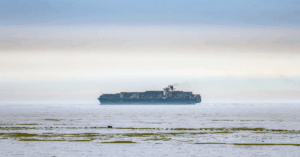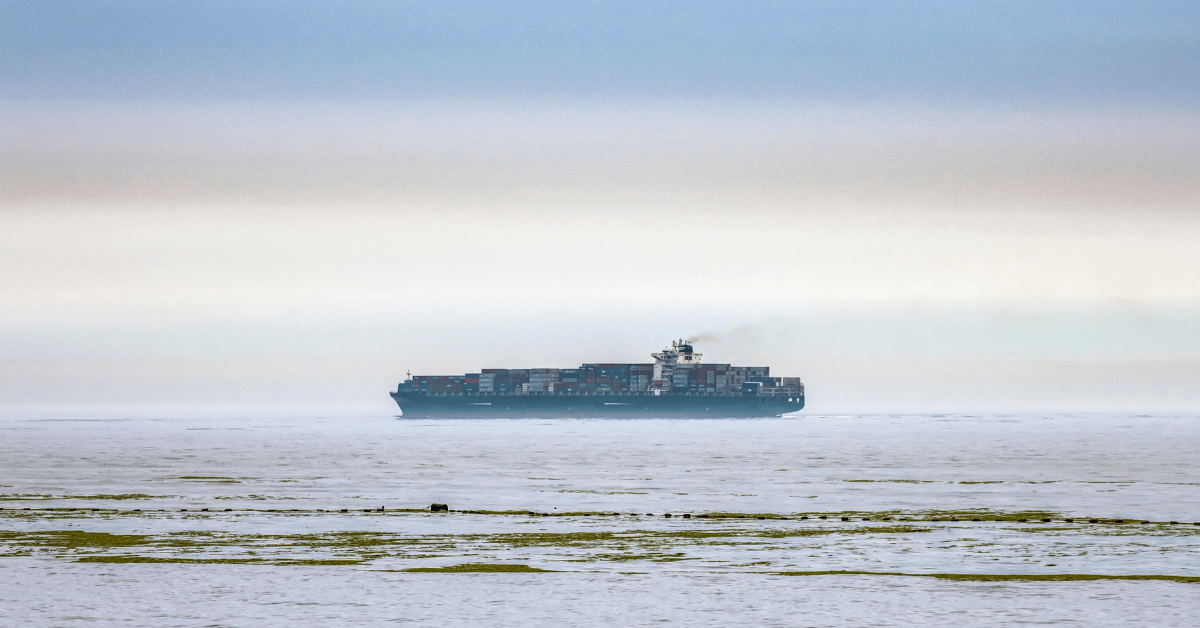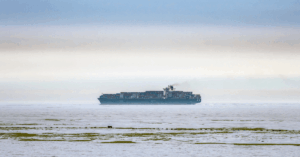
Finland Seeks Prosecution Of Oil Tanker Eagle S Crew After Damage To Undersea Cable
June 14, 2025
Indian Navy & Coast Guard Make Crucial Progress In Towing Burning Ship Away From Coast
June 14, 2025

After Israel launched large-scale attacks on Iran on June 13, tensions in the Middle East have led to major concerns for global shipping.
Shipping companies are now taking extra precautions, with many avoiding the Red Sea and the Persian Gulf, especially near the Strait of Hormuz-one of the world’s most important maritime routes for oil and goods.
The Combined Maritime Forces, a US-led coalition that monitors regional waters, confirmed that the Strait of Hormuz remains open and commercial traffic is moving. However, they also stated that the likelihood of regional conflict has increased to a “significant” level.
Greece and the United Kingdom have issued official advisories. Greece has asked its shipping companies to immediately report details of any Greek-owned vessels sailing through the Strait of Hormuz. Authorities said the move was taken due to increased military activity in the region. Greece, which owns the world’s largest tanker fleet, has a history of its ships being seized there.
A document from Greece’s shipping association said the Ministry of Shipping is calling on companies to submit information on all Greek-owned vessels operating near the Strait.
Meanwhile, the UK’s transport ministry has urged all UK-flagged vessels, including those registered in Bermuda, Gibraltar and Isle of Man, to stay away from the southern Red Sea and Gulf of Aden unless absolutely necessary. If they do sail through, ships must activate the highest level of security and keep crew presence on deck to a minimum.
Shipping association BIMCO said more shipowners are staying away from both the Red Sea and the Persian Gulf after the attacks. Jakob Larsen, head of safety and security at BIMCO, said that if the U.S. is involved in the Israeli strikes, it could increase the risk of a wider conflict. He warned this could lead to missile attacks on ships or sea mines being deployed in the Strait of Hormuz.
Larsen said the situation is tense and getting worse, especially after Iran fired missiles towards Israel late Friday and withdrew from upcoming nuclear talks with the U.S.
The Strait of Hormuz is a narrow but crucial passage linking the Persian Gulf to the Arabian Sea. It is only 35 to 60 miles wide but handles about 20 million barrels per day of oil and oil products-nearly one-fifth of the world’s oil supply.
MarineTraffic data showed the strait has carried 34% of all oil transported by sea so far this year. The last time it was effectively shut down was during the Iran-Iraq “Tanker War” in 1984.
The strait is also essential for container shipping. Ports like Jebel Ali and Khor Fakkan are major hubs, handling cargo for Dubai and connecting to feeder services in the Persian Gulf, South Asia, and East Africa.
Despite the current tensions, the US-led Joint Maritime Information Center (JMIC) said there are no immediate signs of a threat to ships and commercial traffic remains steady. However, it has urged shipping companies to review their contingency plans for rerouting, emergency response, and crew safety if the conflict escalates.
British maritime security company Ambrey advised shipowners to prepare for possible route changes and to avoid sailing close to Iranian waters. They also advised companies to check whether vessels have any Israeli links, current or past, as ships connected to Israel have been targeted before.
Ambrey recommended that, in case of further conflict, ships should consider waiting in safe areas within friendly territorial waters. BIMCO also advised shipowners to follow industry defense guidelines, stay alert for suspicious activity, reconsider their routes, and put seafarer safety first. They should also report any incidents to UK Maritime Trade Operations.
The United States has so far avoided making strong public statements about the attacks. However, it did support Israel by helping intercept Iranian missiles fired on Friday. U.S. Secretary of State Marco Rubio described Israel’s actions as “unilateral” and warned Iran not to target American personnel or interests.
Data and analytics firm Kpler said it is monitoring the situation closely for any signs of vessel rerouting.
Shipping analyst Peter Sand from Xeneta said the strikes have worsened the already fragile maritime security situation in the region. He said it now seems unlikely that Red Sea shipping routes will return to normal, despite earlier hopes for a truce with Yemen’s Houthis.
Since the Houthi attacks began 18 months ago, many freight ships have been avoiding the Red Sea, even though the Suez Canal Authority offered a 15% discount to encourage carriers to return. Despite this incentive, canal traffic has dropped by 60% from pre-attack levels.
Sand added that the latest escalation will likely raise insurance costs for ships, cargo, and crew. He expects freight rates to rise sharply, with ocean carriers possibly adding a “security surcharge” soon due to the growing risk.
References: Reuters, CNA
Source: Maritime Shipping News


